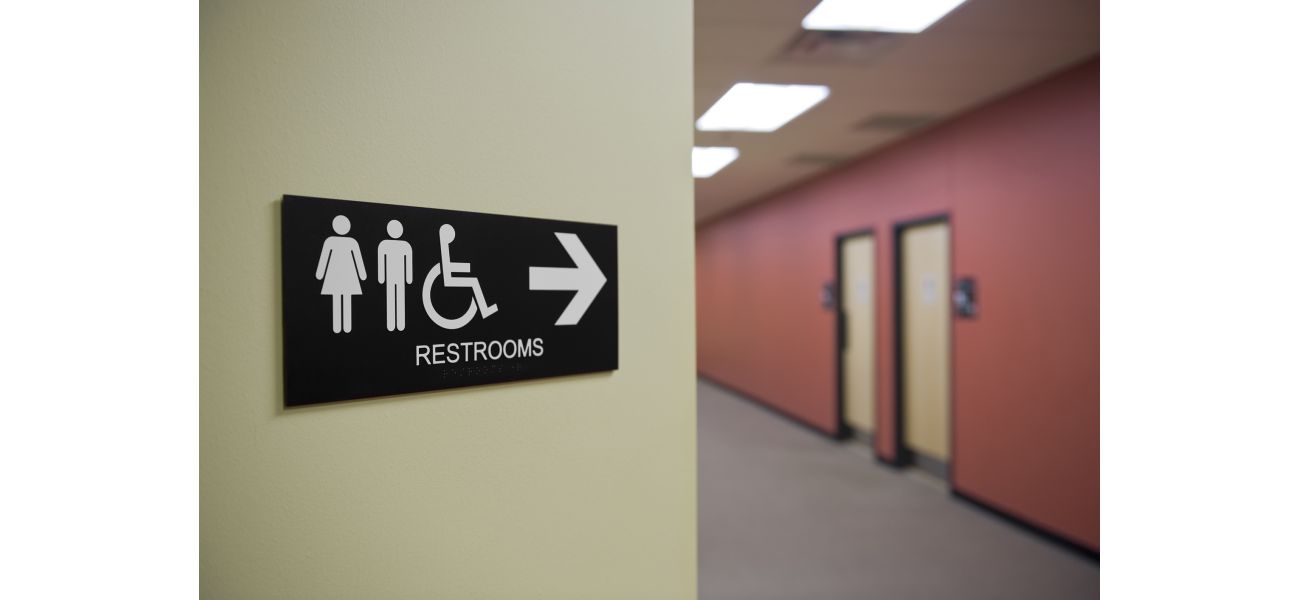Holding your urine can lead to serious health issues.
"Listen to your body and don't ignore its signals, according to health experts."
December 15th 2024.

It's a common occurrence to ignore the signals from our bodies when our bladder is pleading for relief, whether it be for the sake of productivity or simply because we're lounging around. We've all been there - you're in the middle of a meeting or on a long road trip and you decide to push through and hold it in, or you're at the movie theater and you don't want to miss a single moment of the film you just paid $25 to see. But is this behavior really harmless? According to Dr. Jason Kim, a clinical associate professor of urology at the Renaissance School of Medicine at Stony Brook University, it can actually pose a threat to our health, especially if it becomes a regular habit.
Dr. Kim explains that there is a complex neurological system that controls urination. Our kidneys produce urine, which then travels through two tubes called ureters and into the bladder. Normal bladder capacity is about 400 to 600 milliliters. Once our bladder is about half full, nerve receptors signal our brain that it's time to pee. The brain then sends a message to our bladder to hold it in until it's socially acceptable to go. This is when the brain will also send signals to relax the muscles in the urethra and contract the bladder muscles to release the urine.
Dr. David Shusterman, a board-certified urologist, explains that this system was designed to protect us from predators. If we were to release urine while walking, our predators would be able to smell us. Urine also contains concentrated toxins that our body is trying to get rid of, so it's important to be able to hold it in until we're in a safe place to release it.
However, holding in our pee too often can have negative consequences. It can increase our risk of getting a urinary tract infection (UTI), as retaining urine creates a breeding ground for bacteria. This is why it's important to urinate after sexual activity, especially for those with female anatomy, as friction from sexual activity can push bacteria into the urethra. If left untreated, a UTI can lead to a kidney infection, which can then turn into a bloodstream infection.
Holding in our pee over time can also strain and weaken our bladder muscles, making it harder to empty completely when we finally do go. This can create a vicious cycle of leftover urine and an increased risk for infections. Additionally, constantly ignoring our body's signals to urinate can make them less noticeable or stop working altogether. This is often seen in professions such as nursing or teaching, where individuals may not have the opportunity to use the restroom throughout the day.
If you're unable to urinate, it's important to seek evaluation from a doctor. Treatments for this issue include intermittent self-catheterization, long-term catheterization, or sacral neuromodulation - a bladder pacemaker that can help restore normal bladder function. In extreme cases, holding in our pee can cause urine to back up into the kidneys, leading to infections, kidney damage, or other issues such as abdominal pain or bladder stones.
So how risky is holding our pee? Experts say that it's always best to listen to our body's cues and urinate as soon as we can. For the average healthy person, holding in our pee for a few hours a few times a week is unlikely to cause harm. However, regularly ignoring the urge to urinate can put unnecessary strain on our bladder and kidneys. Some individuals, such as older people or those with neurogenic bladder or kidney disorders, may be at a higher risk for harm from holding in their pee.
Pregnant women should also take extra care to honor the urge to urinate, as the added weight and pressure of the uterus can block urine from emptying, increasing the risk of UTIs. Those who smoke or work with toxins may also be at a higher risk for bladder cancer, making it important to urinate frequently. And if you find yourself frequently holding in your pee, it could be a sign of overactive bladder syndrome, diabetes, or a UTI, and it's important to consult a urologist for proper treatment and bladder training exercises.
While we may feel uncomfortable using public restrooms, it's important to prioritize our body's needs over our discomfort. It's better to go when our body needs to, rather than holding it in. If using public restrooms is a concern, carrying disinfecting wipes or a portable seat cover can help alleviate any worries. Our future selves will thank us for taking care of our bladder health.
Dr. Kim explains that there is a complex neurological system that controls urination. Our kidneys produce urine, which then travels through two tubes called ureters and into the bladder. Normal bladder capacity is about 400 to 600 milliliters. Once our bladder is about half full, nerve receptors signal our brain that it's time to pee. The brain then sends a message to our bladder to hold it in until it's socially acceptable to go. This is when the brain will also send signals to relax the muscles in the urethra and contract the bladder muscles to release the urine.
Dr. David Shusterman, a board-certified urologist, explains that this system was designed to protect us from predators. If we were to release urine while walking, our predators would be able to smell us. Urine also contains concentrated toxins that our body is trying to get rid of, so it's important to be able to hold it in until we're in a safe place to release it.
However, holding in our pee too often can have negative consequences. It can increase our risk of getting a urinary tract infection (UTI), as retaining urine creates a breeding ground for bacteria. This is why it's important to urinate after sexual activity, especially for those with female anatomy, as friction from sexual activity can push bacteria into the urethra. If left untreated, a UTI can lead to a kidney infection, which can then turn into a bloodstream infection.
Holding in our pee over time can also strain and weaken our bladder muscles, making it harder to empty completely when we finally do go. This can create a vicious cycle of leftover urine and an increased risk for infections. Additionally, constantly ignoring our body's signals to urinate can make them less noticeable or stop working altogether. This is often seen in professions such as nursing or teaching, where individuals may not have the opportunity to use the restroom throughout the day.
If you're unable to urinate, it's important to seek evaluation from a doctor. Treatments for this issue include intermittent self-catheterization, long-term catheterization, or sacral neuromodulation - a bladder pacemaker that can help restore normal bladder function. In extreme cases, holding in our pee can cause urine to back up into the kidneys, leading to infections, kidney damage, or other issues such as abdominal pain or bladder stones.
So how risky is holding our pee? Experts say that it's always best to listen to our body's cues and urinate as soon as we can. For the average healthy person, holding in our pee for a few hours a few times a week is unlikely to cause harm. However, regularly ignoring the urge to urinate can put unnecessary strain on our bladder and kidneys. Some individuals, such as older people or those with neurogenic bladder or kidney disorders, may be at a higher risk for harm from holding in their pee.
Pregnant women should also take extra care to honor the urge to urinate, as the added weight and pressure of the uterus can block urine from emptying, increasing the risk of UTIs. Those who smoke or work with toxins may also be at a higher risk for bladder cancer, making it important to urinate frequently. And if you find yourself frequently holding in your pee, it could be a sign of overactive bladder syndrome, diabetes, or a UTI, and it's important to consult a urologist for proper treatment and bladder training exercises.
While we may feel uncomfortable using public restrooms, it's important to prioritize our body's needs over our discomfort. It's better to go when our body needs to, rather than holding it in. If using public restrooms is a concern, carrying disinfecting wipes or a portable seat cover can help alleviate any worries. Our future selves will thank us for taking care of our bladder health.
[This article has been trending online recently and has been generated with AI. Your feed is customized.]
[Generative AI is experimental.]
0
0
Submit Comment





